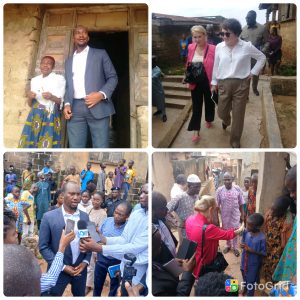The United Nations Children’s Fund (UNICEF) and the Oyo State Government have deepened collaboration to strengthen social protection systems, targeting millions of vulnerable households across the state.

At the launch of the EU-funded Sustainable Social Protection Initiative in Nigeria (SUSI), Acting Governor Barrister Abdulraheem Adebayo Lawal said Oyo had expanded its social register by over 24,000 households representing more than 100,000 people while programmes like the Sustainable Action for Economic Recovery (SAfER) remain key to cushioning hardship.
UNICEF, however, noted that significant gaps remain. Representing UNICEF Nigeria’s Country Representative, Saeed Wafaa observed that nearly half of Oyo’s residents live in multidimensional poverty, with 72.7 percent of children facing multiple deprivations.
He warned that only 11 percent of vulnerable households are currently captured in the state’s social registry, with a mere 2 percent accessing assistance.
Despite these challenges, UNICEF’s Chief of Lagos Field Office, Celine Lafoucriere, described the partnership as a critical step forward, stressing that “social protection is not a luxury but a lifeline.”
During a joint field visit to Oke Sunnah, Odo-Oba, UNICEF’s Programme and Social Policy Manager, Mohammad Okorie, and state officials assessed how poor and vulnerable households are identified through poverty mapping, community verification, and National Identity Number (NIN) integration.
Okorie explained that this transparent, geo-tagged database ensures accountability and makes it easier for ministries to deliver targeted interventions.
By 2026, about 250,000 additional households are expected to be captured under the initiative.
Oyo’s Commissioner for Budget and Economic Planning, Prof. Musibau Babatunde, said the collaboration aligns with Governor Seyi Makinde’s Roadmap for Sustainable Development 2023–2027, while UNICEF reaffirmed its commitment to supporting Oyo in delivering inclusive, child-focused social protection.

